See You Tomorrow
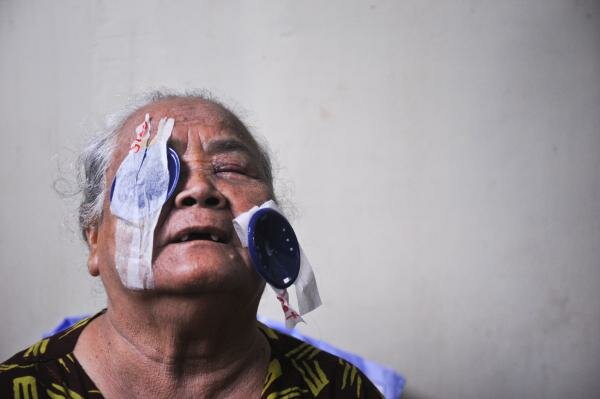
 1 of 13
1 of 13 
In November 2012, six eye surgeons from Nepal and Indonesia teamed up with countless volunteers in the cities of Padangsidempuan and Medan in Indonesia's North Sumatra, with the mission to help the blind see again.
The sight restoration camp is a part of a series of camps organized by Singapore-based NGO A New Vision in collaboration with Nepal's Tilganga Institute of Ophthalmology. Over a period of 11 days, eye surgeons successfully restored sight to 1,452 eyes. Twelve patients were under the age of nine.
Text & Pictures
by Debby Ng/theasiamag
(Left) 74-year old Janipa Hutabarat who was blinded by cataracts prepares to open her eyes for the first time since undergoing surgery the day before at a military camp in rural Padangsidempuan, North Sumatra.
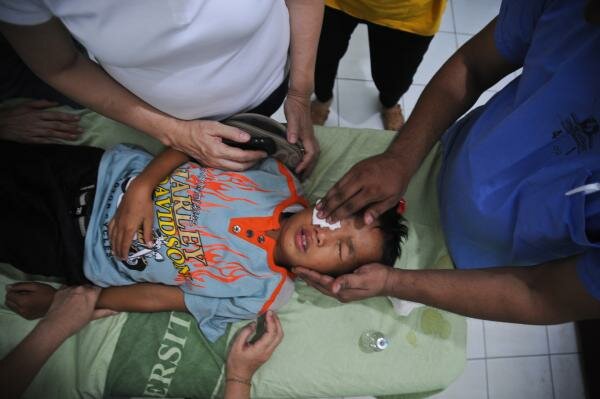
 2 of 13
2 of 13 
9-year old Ansari, from North Sumatra's rural Jaring Natubang regency, is blind in both eyes due to congenital cataracts. He is comforted by volunteers and staff as he receives a local anesthetic in his eye, at a military hospital in Padangsidempuan, North Sumatra.
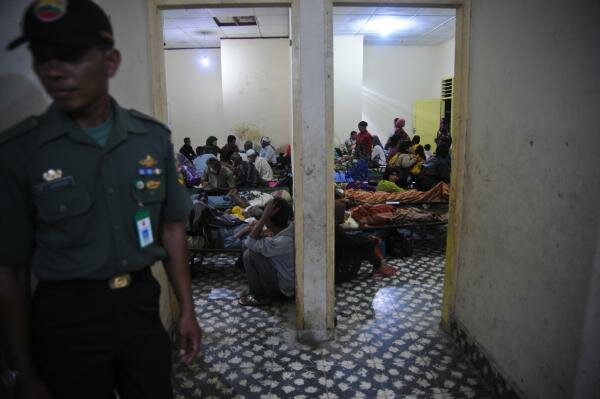
 3 of 13
3 of 13 
Patients rest in a military hospital in Padangsidempuan, North Sumatra, after undergoing cataract removal surgery.
In the developing world, there remains a need to improve early case detection and referral services and to establish centers with expertise in the assessment, surgical treatment, and long-term management of children and adults with cataracts.
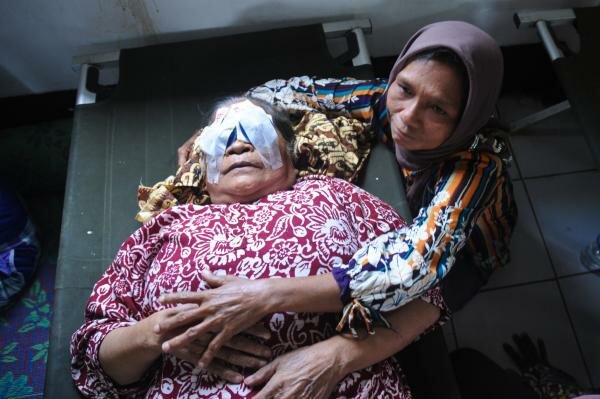
 4 of 13
4 of 13 
77-year old Timun Nasution who was blinded by cataracts is comforted by her daughter after receiving cataract removal surgery in both her eyes at a military hospital in rural Padangsidempuan, North Sumatra.
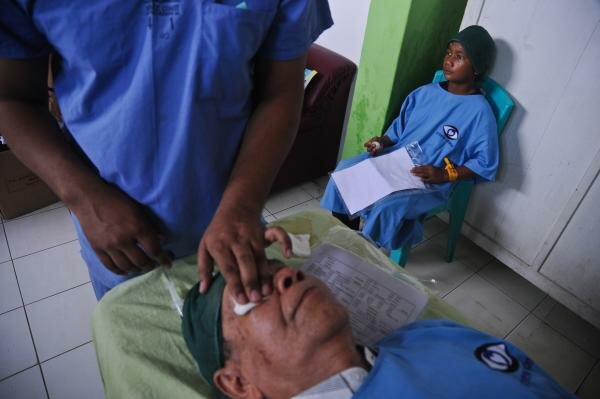
 5 of 13
5 of 13 
13-year old Henriadi, blinded by congenital cataracts, awaits receiving a local anesthetic before undergoing cataract removal surgery for both eyes at a military hospital in rural Padangsidempuan, North Sumatra. Congenital cataract is the most common cause of treatable childhood blindness.
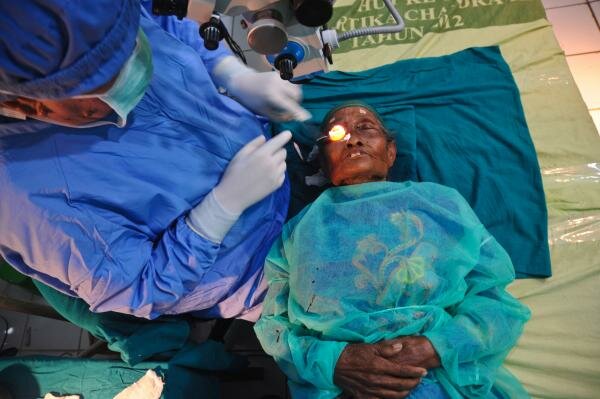
 6 of 13
6 of 13 
Dr. Sanduk Ruit performs cataract removal surgery on 73-year old Domu from North Sumatra's rural Mandheling Natal Regency, at a military hospital in Padangsidempuan.
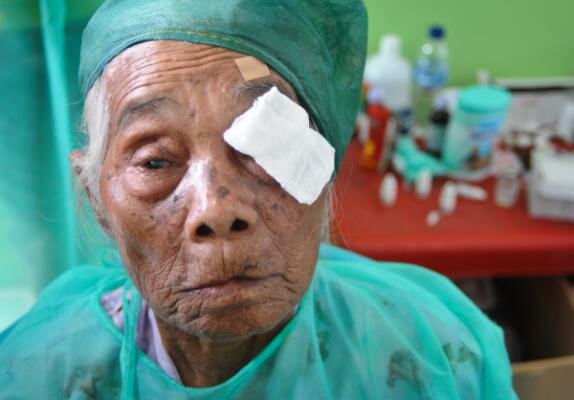
 7 of 13
7 of 13 
A woman awaits cataract removal surgery after receiving a local anesthetic at an eye camp in rural Padangsidempuan, North Sumatra.
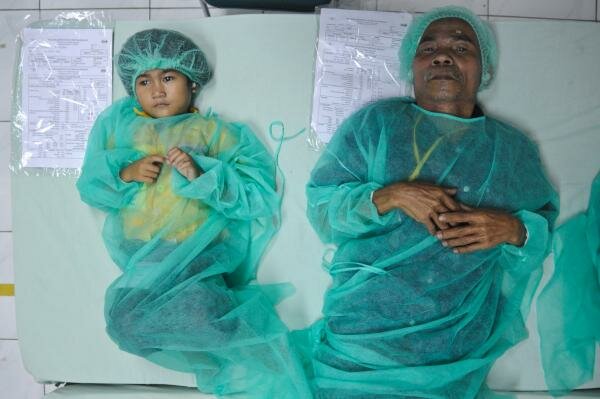
 8 of 13
8 of 13 
Tiurmaida Simunjuntak, 6, is blind and lies next to 71-year old Lejja Banurea, as she waits to receive a local anesthetic before undergoing cataract removal surgery at Putri Hijau Hospital in Medan, North Sumatra.
There are an estimated 200,000 children blind from cataract worldwide, with 20,000 to 40,000 children with developmental bilateral cataract being born each year.
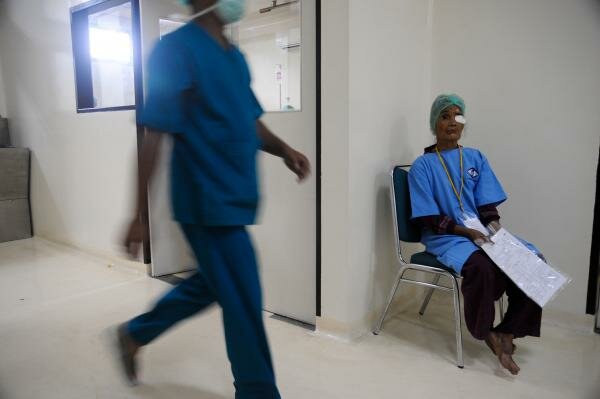
 9 of 13
9 of 13 
A woman awaits to receive cataract removal surgery at Putri Hijau Hospital in Medan, North Sumatra.
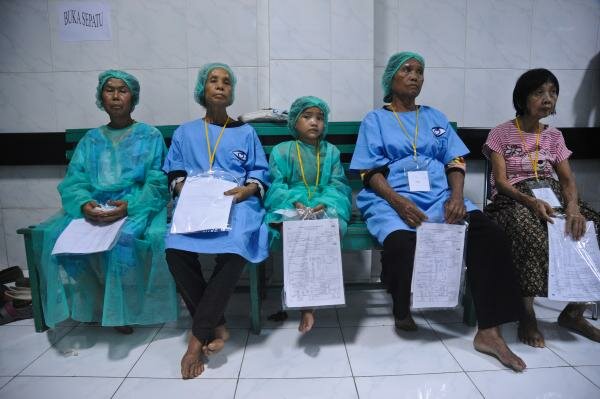
 10 of 13
10 of 13 
An 8-year old girl waits to receive a local anesthetic before undergoing cataract removal surgery at Putri Hijau Hospital in Medan, North Sumatra.
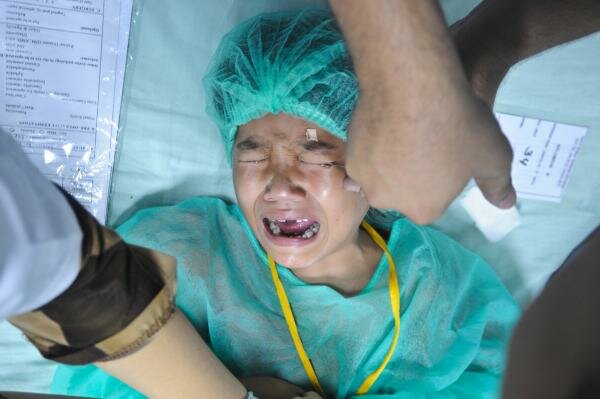
 11 of 13
11 of 13 
An 8-year old girl who is blind in one eye, receives an anesthetic before undergoing cataract removal surgery at Putri Hijau Hospital in Medan, North Sumatra.
Rubella, a common cause of congenital cataracts, remains an important preventable disease in many countries.
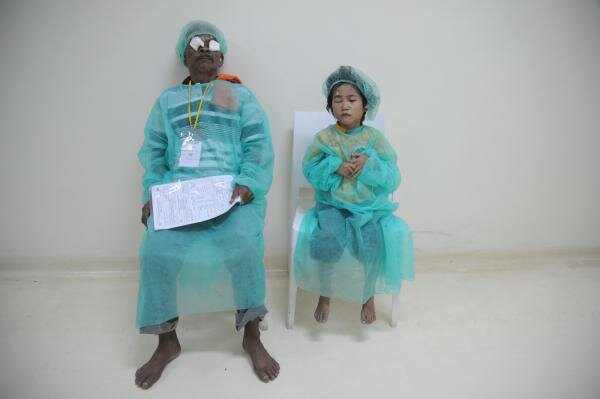
 12 of 13
12 of 13 
6-year old Tiurmaida Simunjuntak waits to undergo cataract removal surgery at Putri Hijau Hospital in Medan, North Sumatra. Though she is blind in both eyes, she will have her cataracts removed one at a time.
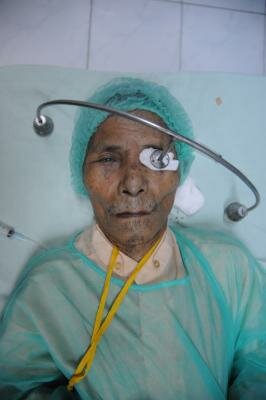
 13 of 13
13 of 13 
A patient who has just received a local anesthetic rests with a balanced weight on his eye before undergoing cataract removal surgery at Putri Hijau Hospital in Medan, North Sumatra.
Four out of five people who suffer blindness due to cataracts can be treated to regain partial if not complete vision.













